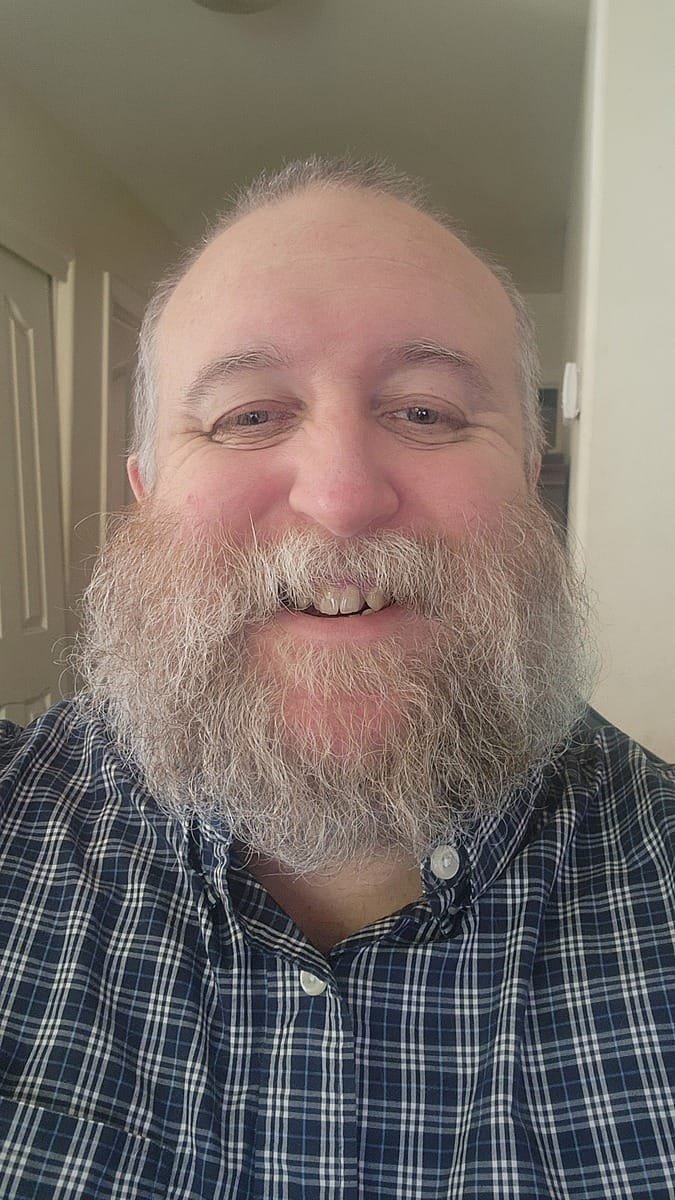I served in Iraq in 2003.
I was part of the invasion — boots on the ground when everything was chaos and uncertainty, and dust. I was 22 years old. We slept in blown-out buildings, ran missions with our nerves on fire, and learned fast how to shut down our emotions just to survive.
I saw things no one should have to see. I did what I had to do. And like so many others, I brought pieces of that war home with me.
But I didn’t know, back then, how long the war would follow me.
Not in sand or gunfire, but in silence. In nightmares. In the way my brain short-circuits under pressure. In how I forgot basic things in the classroom years later. In the deep isolation that creeps in even when you're surrounded by people.
When I came home, I didn’t fall apart immediately. I didn’t turn to the bottle. I didn’t disappear into addiction.
I tried to live.
I went to school. I got a job. I became a teacher.
I sought out therapy, inside and outside the VA. I took my meds. I checked all the boxes.
Even with a 50% PTSD rating, I kept trying to push through.
I thought: If I just keep doing the work, eventually the system will meet me halfway.
But it never did.
When my symptoms got worse — when I couldn’t manage a classroom anymore, when the anxiety and memory issues became too much, when the depression got heavy enough that I couldn’t fake it anymore — I asked for help.
I filed for an increase. I applied for Individual Unemployability (IU).
And I was denied.
Not because I wasn’t struggling, but because I had held it together too long.
Because I didn’t break in a way that was convenient or obvious.
Because I kept showing up, even when I was falling apart inside.
That’s when I started to realize something I hadn’t wanted to admit for years:
The system doesn’t reward strength. It waits for you to collapse.
And if you hold on too long, if you keep your life barely stitched together, they don’t see it as resilience.
They see it as proof that you don’t need help.
But if I had come home and spiraled immediately…
If I had gotten hooked on drugs, lost everything, ended up on the street…
They would’ve seen me. They would’ve given me the rating.
They would’ve responded faster.
And that’s the part that makes me sick.
I had a conversation recently with my VA mental health doctor, one of the rare good ones, someone who actually hears me. I told him how angry I was about the denial. And we talked about something I hadn’t fully put into words before:
Those combat veterans. especially the ones who try to hold it together, become carcasses for the system to feed off of.
They feed on our trauma, our delays, our appeals.
They build careers on the backs of our pain.
If every veteran got the benefits they truly earned, half the VA and VSO infrastructure would shrink, and they know it.
So the system is built not to heal us… but to manage us.
To keep us just broken enough to stay in the system, but never whole enough to leave it.
We become job security.
It took me years to come to this conclusion.
Because I wanted to believe the system was there to help.
Because I thought doing the right thing, staying clean, staying employed, staying patient, would eventually pay off.
Because I didn’t want to be angry. I didn’t want to be “that” vet.
But now, I can’t deny what I’ve lived.
And I refuse to stay quiet about it.
This isn’t just about my denied claim.
It’s about the quiet betrayal that so many veterans face, the ones who fought to stay strong and ended up getting punished for it.
We’re only visible when we’re fully broken.
We’re only believed when we fall apart in public.
That’s not support. That’s exploitation dressed in red, white, and blue.
If you’re a veteran who tried to do it right, who kept it together until you couldn’t anymore, I see you.
If you feel invisible because you didn’t crash fast enough for them to notice, I am you.
And if you’re still fighting to be heard, you’re not alone.
The system didn’t break me on the battlefield.
It waited until I came home.
And then it starved me of support until I nearly broke myself.
But I’m still here. And I’m speaking up.
Not because it’s easy, but because someone has to.
If this sounds like your story, I’d love to hear from you. Drop a comment or message me. And if you’re still in the fight, I’m right there with you.


